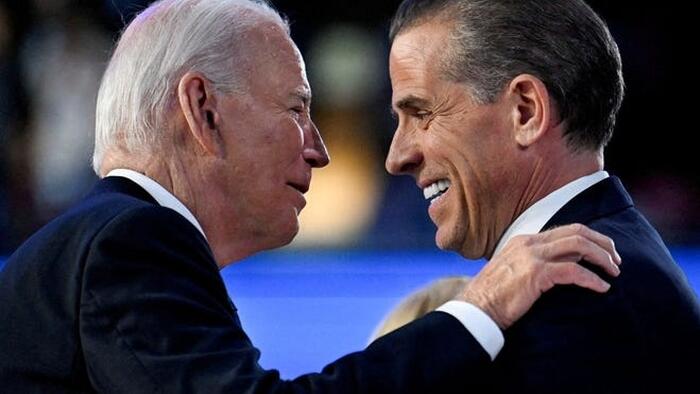In recent debates surrounding President Joe Biden’s controversial pardon of his son, Hunter Biden, significant public discontent has surfaced, highlighting perceived misuse of presidential authority. A recent poll by the Associated Press-NORC Center for Public Affairs Research revealed that only 20% of Americans support the pardon, reflecting a broader sentiment against what many view as an unethical act. This discontent spans party lines, with only 38% of Democrats voicing support. Contrary to the claims made by White House Press Secretary Karine Jean-Pierre—which suggested 64% approval among Americans—the data actually indicates that a majority opposes the pardon, demonstrating a disconnect between political rhetoric and public opinion.
Turley criticizes the Democratic Party’s narrative regarding the pardon, underscoring the embarrassment surrounding the initial misrepresentation. Jean-Pierre’s assertion was based on a misinterpretation of the poll, which pertained to Democratic support rather than a nationwide consensus. As it stands, the narrative within the White House and among Democratic lawmakers seems to have shifted in light of new polling data, revealing that even among Democrats, enthusiasm for the pardon is dwindling. This illustrates a troubling trend for Democratic leadership, as it grapples with not only public opposition but also internal dissent regarding the legitimacy of the pardon.
Despite the backlash, prominent Democratic figures persist in defending the pardon, framing it as a compassionate act. Senator Dick Durbin of Illinois has referred to the pardon as a “labor of love,” an expression that reflects a growing sentiment among some Democrats who feel compelled to justify what many see as an egregious use of political power. Such justifications point to a broader culture of nepotism and influence within Washington, echoing concerns that the pardon serves more as a means of protecting personal interests than as an act of justice or mercy.
The ongoing support for the pardon from Democratic leaders indicates they are now “Prisoners of Love,” caught in a narrative of familial loyalty that clashes with public ethics. Rather than acknowledging the ethical implications of the pardon, these leaders focus on rationalizing it, potentially alienating themselves from a significant portion of the electorate. This practice of defending perceived corrupt actions could further erode trust in political institutions and deepen the divide between politicians and constituents.
As the Democratic Party continues to grapple with the fallout from this scandal, the implications of their responses could shape future political dynamics. The leadership’s defensive posture may not only alienate moderate voters but could also spur further scrutiny of their values and actions. The struggle to reconcile loyalty to family with the need for ethical governance presents a unique challenge for the party, potentially impacting their electoral prospects moving forward. The ramifications of the Biden pardon saga may resonate well beyond the current administration, influencing public perceptions of accountability and ethical standards in politics.
In conclusion, the controversy surrounding the pardon of Hunter Biden serves as a critical lens through which the public examines ethical governance and the responsibilities of political leaders. With increasingly negative public sentiment and dwindling support among Democrats, the backlash illustrates the precarious balance Democratic lawmakers must maintain between familial loyalty and the imperative for integrity in public office. The situation highlights an urgent need for politicians to reassess their priorities and the narratives they espouse, lest they risk further alienation from the constituents they serve, thereby affecting their credibility and electoral viability in the long term.

